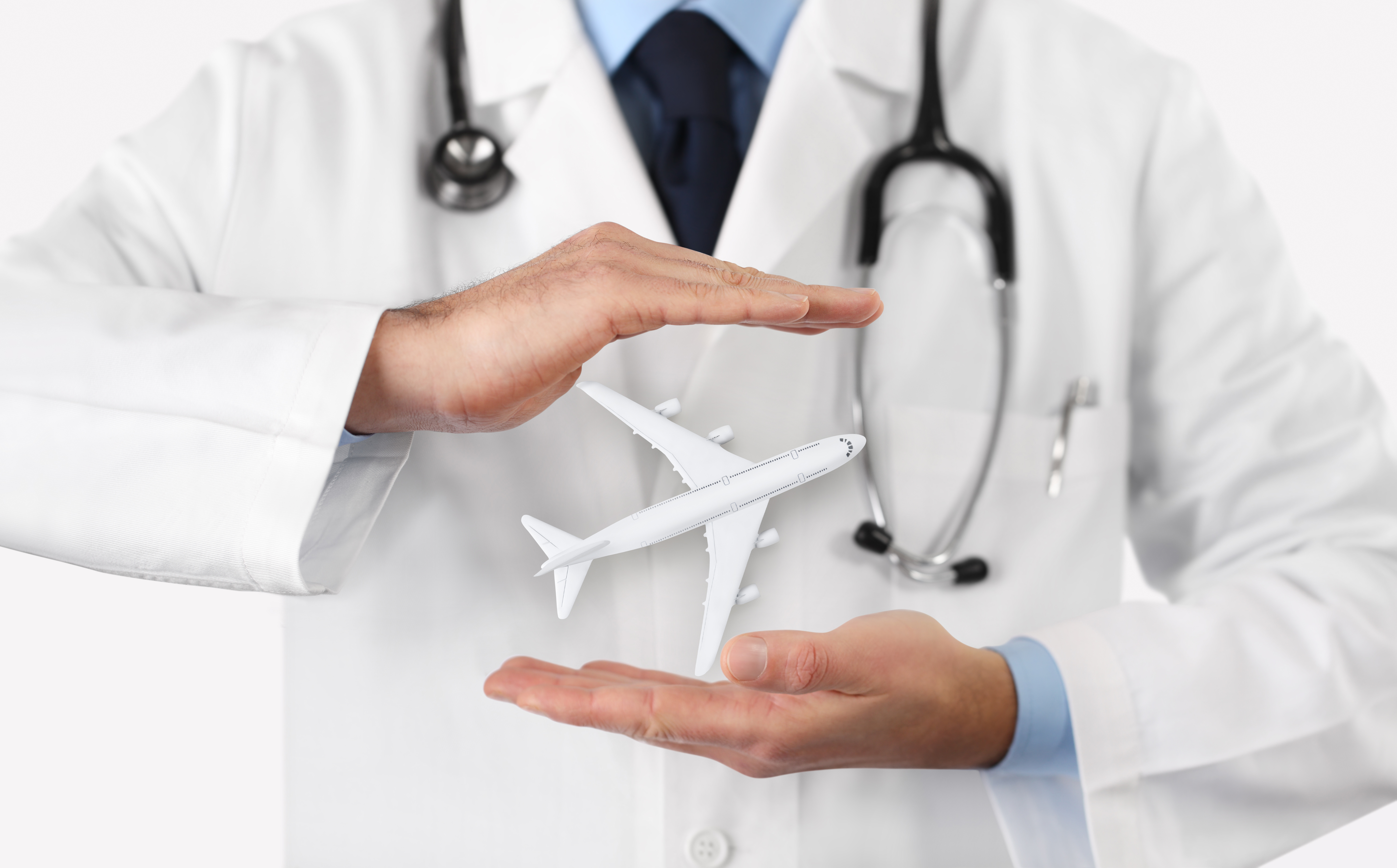A guide to having a hair transplant abroad

Hair transplant tourism, particularly to countries like Turkey, is on the rise. In this blog, we discuss what to look out for when travelling for transplants, understanding the risks of such treatment and what should be asked to maximise chances of safe and effective surgery.
Medical tourism is on the rise, with a recent report estimating the market to be valued at US$10.1 billion in 2020 with a predicted mean annual growth of 12.1% between 2021 and 2027.2 Hair transplant surgery is shown to play a significant part of this industry.
Some reports claim that during lockdown many British men and women slipped away to countries like Turkey for cosmetic surgery and hair transplants.1 With lockdown restrictions now easing and foreign travel permitted, it is likely that more people will be exploring the option of having their hair transplants abroad.
It is important to acknowledge that there are many good clinics around the globe offering hair transplant surgery. Unfortunately, in certain countries, these are heavily outnumbered by other clinics popping up to cash in on the trend promising low prices and guaranteed results. Concerningly, these clinic exist in countries where regulation is limited and are reported to have non-medical professionals will little to no experience performing the actual surgery.
Hair transplants are generally a safe and effective solution for hair loss when performed by a suitably trained doctor, but despite this complications can occur. The International Society of Hair Restoration Surgery (ISHRS) highlights how some complications like skin necrosis (skin death), unsightly scarring and over-harvesting are often seen as a result of poorly performed surgery. These can cause unsatisfactory outcomes or ongoing issues for the patient which in some cases can be irreparable.3
Should a complication arise, being able to see the surgeon or their team is very important as only they will know what happened in the operation. Furthermore, that person needs to be suitably qualified to manage the complication effectively. In some cases patients who have had surgery abroad are left without support from their clinic once they have returned to Britain and often end up at their General Practitioner or the Emergency Department as the only means of help. Another hair transplant clinic in the UK may not be able to see them for as long as 12 months until corrective surgery can be considered.
It is therefore important to look out for clinics who may not have the patient’s best interests at heart and avoid them completely.
5 tips to help identify a fraudulent clinic
- Avoid clinics that offer scarless surgery as this is impossible. There will always be some level of scarring even if it is well disguised.
- Avoid clinics that offer pain free surgery as this is very unlikely to be the case. Ask for clarification on how the scalp is numbed for surgery.
- Caution with clinics that offer maximum, unlimited or exaggerated grafts numbers, as taking such large graft numbers in one surgery carries significant risk.
- Caution with clinics that offer treatments as part of a package with other cosmetic procedures such as ‘teeth whitening’.
- Caution with clinics who offer ‘special techniques’ to market their procedure. Find out how such techniques would result in a better outcome.
There are also some crucial questions which any reputable clinic should be able to answer to show they are safe.
10 tips for safeguarding yourself if you are considering surgery abroad:
- Ask if you will meet your hair transplant surgeon prior to the day of surgery and prior to any exchange of payment.
- Find out who the surgeon is, what their qualifications and experience are and where you can verify this.
- Ask who will be in charge of the procedure and make sure you know which parts of the surgery will be done by a doctor and which by a non-doctor.
- Is the clinic registered with a health care authority?
- What language will the doctors, nurses and other health workers involved in your care use and what language will your medical notes be in?
- If a holiday ‘package’ is included in the price are there any hidden costs associated with this?
- How would the clinic deal with an emergency if serious complications were to arise during the procedure?
- Does the doctor, clinic or hospital have insurance that covers your procedure?
- How long will you need to stay abroad before you are well enough to travel back to the UK?
- Who can you contact for advice once you are back in the UK and will follow up checks be offered in the UK?
The BAHRS website has additional advice on factors to consider when choosing a hair transplant surgeon. Visit https://www.bahrs.co.uk/patient-advice/ where there are downloadable PDFs detailing our guidance.
For specific advice for patients considering surgery aboard download the guidance here: https://www.bahrs.co.uk/content/large/documents/patient_advice/bahrs-advice-to-patients-considering-having-hair-transplant-surgery-abro....pdf
The ISHRS is a global non- profit medical association and the leading authority on hair loss treatment. Follow their “Fight the FIGHT” campaign where licensed doctors speak out about the issue and offer guidance.3
The following resources are also available:
- http://www.nhs.uk/livewell/treatmentabroad/pages/cosmeticsurgeryabroad.aspx
- http://www.nhs.uk/Livewell/Treatmentabroad/Pages/Risks.aspx
- http://www.bapras.org.uk/public/patient-information/cosmetic-surgery/cosmetic-surgery-abroad
References
2. https://www.gminsights.com/industry-analysis/medical-tourism-market
3. https://fightthefight.ishrs.org/

